Related Research Articles
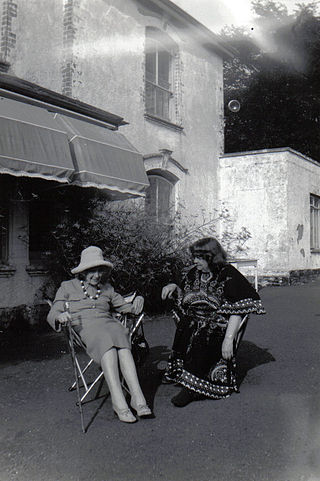
Jean Rhys, was a British novelist who was born and grew up in the Caribbean island of Dominica. From the age of 16, she mainly resided in England, where she was sent for her education. She is best known for her novel Wide Sargasso Sea (1966), written as a prequel to Charlotte Brontë's Jane Eyre. In 1978, she was appointed a Commander of the Order of the British Empire (CBE) for her writing.
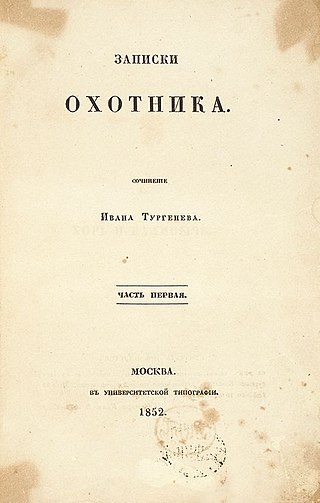
A Sportsman's Sketches is an 1852 cycle of short stories by Ivan Turgenev. It was the first major writing that gained him recognition.
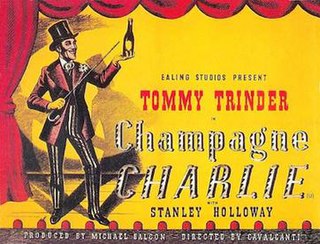
Champagne Charlie is a 1944 British musical film directed by Alberto Cavalcanti and loosely based on the rivalry between the popular music hall performers George Leybourne, who was called "Champagne Charlie" because he was the first artist to perform the song of that title, and Alfred Vance, who was known as "The Great Vance".
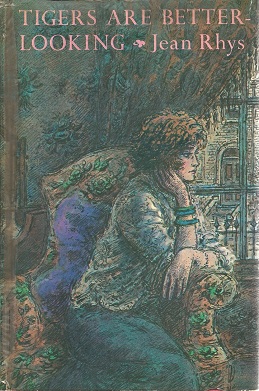
Tigers are Better-Looking is a collection of short stories written by Dominican author Jean Rhys, published in 1968 by André Deutsch and reissued by Penguin ten years later. This collection's first eight stories were written by Rhys during her 1950s period of obscurity and first published in the early 1960s. The second nine are reissued from her 1927 debut collection The Left Bank and Other Stories. In 1979, the title story from Rhys's collection was adapted into a UK-produced short film, directed by Hussein Shariffe.

Julia Catherine Donaldson is an English writer and playwright, and the 2011–2013 Children's Laureate. She is best known for her popular rhyming stories for children, especially those illustrated by Axel Scheffler, which include The Gruffalo, Room on the Broom and Stick Man. She originally wrote songs for children's television but has concentrated on writing books since the words of one of her songs, "A Squash and a Squeeze", were made into a children's book in 1993. Of her 184 published works, 64 are widely available in bookshops. The remaining 120 are intended for school use and include her Songbirds phonic reading scheme, which is part of the Oxford University Press's Oxford Reading Tree.

The Aspern Papers is a novella by American writer Henry James, originally published in The Atlantic Monthly in 1888, with its first book publication later in the same year. One of James's best-known and most acclaimed longer tales, The Aspern Papers is based on the letters Percy Bysshe Shelley wrote to Mary Shelley's stepsister, Claire Clairmont, who saved them until she died. Set in Venice, The Aspern Papers demonstrates James's ability to generate suspense while never neglecting the development of his characters.
Anne Patricia Briggs is an English folk singer. Although she travelled widely in the 1960s and early 1970s, appearing at folk clubs and venues in England and Ireland, she never aspired to commercial success or to achieve widespread public acknowledgment of her music. However, she was an influential figure in the British folk revival, being a source of songs and musical inspiration for others such as A. L. Lloyd, Bert Jansch, Jimmy Page, The Watersons, June Tabor, Sandy Denny, Richard Thompson, and Maddy Prior.
"Meeting Across the River" is the seventh track on Bruce Springsteen's breakthrough 1975 album, Born to Run; it also appeared as the B-side of "Born to Run", the lead single from that album. The song is often paired with "Jungleland" in concert, though without the Randy Brecker trumpet part from the record and with regular bass guitarist Garry Tallent.

Rhys Ashworth is a fictional character from the British Channel 4 soap opera Hollyoaks, played by Andrew Moss. He made his first on-screen appearance in September 2005. Rhys was killed off in the Enjoy The Ride storyline in an episode airing on 15 November 2012 and the character departed on 16 November 2012. Rhys made a return on 27 June 2014 as part of his ex-girlfriend Cindy Cunningham's storyline about her bipolar disorder.
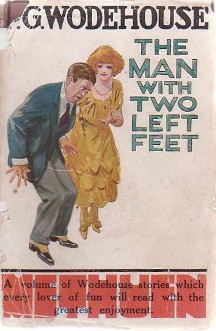
The Man with Two Left Feet, and Other Stories is a collection of short stories by British author P. G. Wodehouse, first published in the UK on 8 March 1917 by Methuen & Co., London, and in the US on 1 February 1933 by A. L. Burt and Co., New York. All the stories had previously appeared in periodicals, usually The Strand Magazine in the United Kingdom and The Red Book Magazine or The Saturday Evening Post in the United States.
"Clay" is a short story by James Joyce published in his 1914 collection Dubliners. It deals with the reflections of a middle-aged, unmarried woman during the course of her day.
"Sonny's Blues" is a 1957 short story written by James Baldwin, originally published in Partisan Review. The story contains the recollections of a black algebra teacher in 1950s Harlem as he reacts to his brother Sonny's drug addiction, arrest, and recovery. Baldwin republished the work in the 1965 short story collection Going to Meet the Man.

Sarah Jane Morris is an English singer of pop, jazz, rock and R&B and a songwriter.
Millicent Irene Silver was an English harpsichordist, who began her career as a pianist and violinist.
Going to Meet the Man, published in 1965, is a collection of eight short stories by American writer James Baldwin. The book, dedicated "for Beauford Delaney", covers many topics related to anti-Black racism in American society, as well as African-American–Jewish relations, childhood, the creative process, criminal justice, drug addiction, family relationships, jazz, lynching, sexuality, and white supremacy.

Elephant and Other Stories (1988) is the last collection of short stories by American writer Raymond Carver. They were the final seven stories Carver wrote before his death, and only appeared as a separate book in Great Britain. The book was published by Collins Harvill in London on August 4, 1988, two days after Carver's death.
"Vitamins" is a short story by American author Raymond Carver. It was originally published in the Spring 1981 edition of Granta magazine and later in 1983, in the short story collection Cathedral.
Winsome Pinnock FRSL is a British playwright of Jamaican heritage, who is "probably Britain's most well known black female playwright". She was described in The Guardian as "the godmother of black British playwrights".

Night in Tunisia was the first book by Irish writer Neil Jordan in 1976, containing ten stories and was published by The Irish Writers Co-operative in Dublin. The story's title is a jazz standard composed by Dizzy Gillespie. It won a Somerset Maugham Award and in 1979 it won the Guardian Fiction Prize and was then published by Writers and Readers in the UK and by George Braziller in the US.
References
- 1 2 3 4 5 6 Magazine, The London (2019-03-11). "Archive | Fiction | Let Them Call it Jazz by Jean Rhys". The London Magazine. Retrieved 2020-07-10.
- 1 2 Rhys, Jean, and PETER BURTON. "Jean Rhys: INTERVIEWED BY PETER BURTON." The Transatlantic Review, no. 36 (1970): 105–09. Accessed July 10, 2020. www.jstor.org/stable/41514293.
- ↑ Malcolm, C. A. (2009). Jean Rhys: “Let Them Call It Jazz”. In A Companion to the British and Irish Short Story (eds C.A. Malcolm and D. Malcolm). doi:10.1002/9781444304770.ch40
- ↑ Nicola, Abram (2015). "Looking Back: Winsome Pinnock's Politics of Representation". In Brewer, Mary F.; Goddard, Lynette; Osborne, Deirdre (eds.). Modern and Contemporary Black British Drama. London: Palgrave Macmillan. pp. 95–111. ISBN 9781137506290.
- ↑ "Honor Ford-Smith". www.yorku.ca. Retrieved 2020-07-10.
- ↑ Naidu, Sam. "Diaspora and the Short Story." In The Edinburgh Companion to the Short Story in English, edited by Delaney Paul and Hunter Adrian, 313–27. Edinburgh: Edinburgh University Press, 2019. Retrieved July 10, 2020. www.jstor.org/stable/10.3366/j.ctv8jnzvj.24.